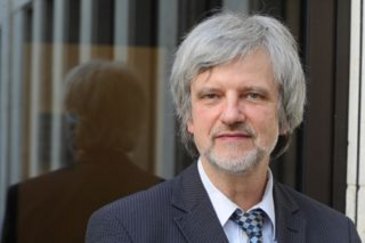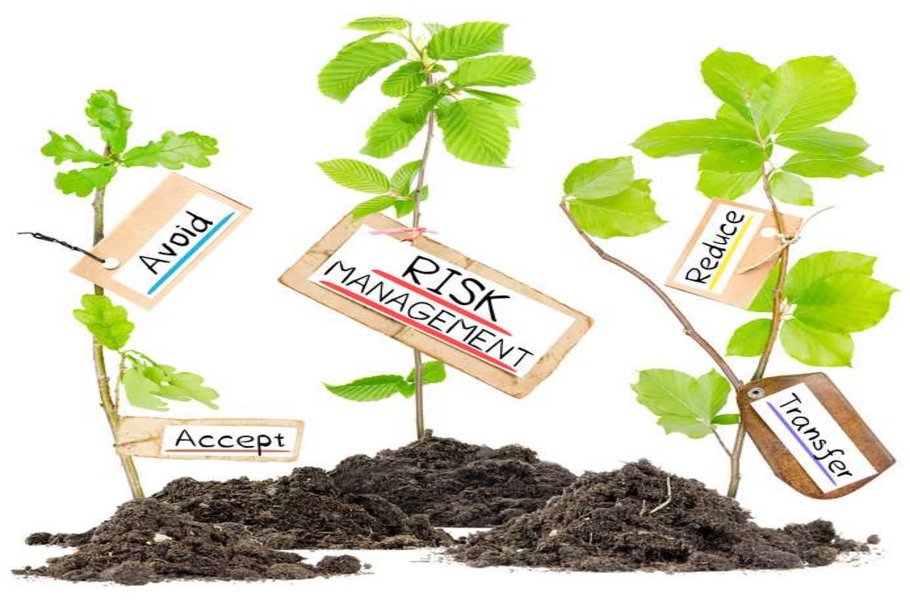Leonardo da Vinci once claimed that all our knowledge has its origin in our perceptions. The sensory perception organs (sight, hearing, touch, taste and smell) allow us to perceive risk physically and neuro-physiologically. We call this subjective construct risk. Our knowledge, our emotions, our moral convictions, fashions, judgements and opinions determine the risk construct.
We spoke to Ortwin Renn, Professor of Environment and Technical Sociology at the University of Stuttgart, about "false" risks and "genuine risks" and how we can deal with them responsibly.
What are the key drivers that cause us to fear certain hazards and risks which, according to the best academic findings, can only cause moderate harm and why, on the other hand, do we ignore significant risk scenarios?
Ortwin Renn: First of all, we see everything that's natural as being without risk or low risk and everything artificial as being very dangerous. We perceive nature as an idyllic retreat, which can only be good for people. Peaceful swans in the park, delicious vegetables and fresh air all suggest that nature is pure health. However, nature is full of poisons and dangers. Many plants that do not want to be eaten are protected against predators by poisons. At the same time, more than 80,000 people every year are victims of natural disasters such as earthquakes, floods and hurricanes. Fortunately we don't experience too many of these, which reinforces our idea that nature is idyllic.
Secondly, people tend to be frightened of dangers that they are familiar with from their own experience or that they can directly perceive with the senses. Examples of these include radioactive radiation, BSE agents or indoor pollution caused by formaldehyde. We cannot keep 10,000 rats in the cellar and test how pesticide residues in mineral water affect them. Because we lack personal experience, we have to trust what we are told by academics politicians and the media. If we don't want to do that, or statements by experts are contradictory, we rely on our gut feeling. And that means we have an alarmed response as soon as something is unfamiliar or hard to judge based on our experiences.
Thirdly, we witness countless disasters and accidents every day in the virtual world. With seven billion people on earth, that's only to be expected. A hundred years ago, the global population was just 1.7 billion, and there was no medium like the Internet, which lets us share everything in real time. This reinforces the idea that the world is getting increasingly risky and more dangerous. However, statistically this is not the case at all. It's simply that these days we find out more about dangers and their negative impacts.
In your book "The Risk Paradox" you describe some of the risks of the modern world. Using statistics and epidemiology, you demonstrate that our society has an increasingly safe life and that average life expectancy is higher than in any previous generation. We are increasingly unlikely to be victims of accidents poisoning or any other sudden event that could cause us severe harm. Therefore, our lives have much lower risk, and yet we are still afraid of electric smog, crime, financial crisis, pesticide residue, antibiotics or hormones in meat, genetically modified foods and chemical preservatives. What are the reasons for this?
Ortwin Renn: Statistically speaking, a newborn girl will live to be 88.3 years old, a male newborn 83.1 years. This is an almost biblical age, which is almost the limit of what is biologically possible with current medicines. There are four key factors behind the dramatic increase in life expectancy: better hygiene, regular and balanced nutrition, functional and effective security and hazard control institutions, and medical advances in treatment of diseases. These four factors affect not just the top ten thousand people in society, but theoretically each and every person. Scientific and technical progress, along with equal opportunities for all are the key issues here.
What are the reasons why many people are looking for "zero risk", to always be on the safe side?
Ortwin Renn: As I already intimated, many dangers today can no longer be perceived with the senses. This means that we used to be able to see that a danger was lurking somewhere, for example a loose stone that could fall from a mountain, falling off a bicycle or mould on our jam. We can see those things and assess them quite well. Most risks that threaten our health these days are things we cannot perceive with our eyes, our ears or our taste buds. Whether BSE is in meat, whether we are surrounded by electromagnetic radiation or whether we have residues in our drinking water cannot be perceived with our own sensory organs. We depend on information from other people. This means, we either have to trust them or not trust them. If we trust no-one, most people want zero risk. This is understandable in some ways, as if I do not know how high the risk is and everybody tells me something different that I cannot verify, I'd rather avoid the activity altogether. In order words, zero risk.
Systemic risks reflect general disturbances that occur when individual rational behaviour in the system leads collectively to unwanted results, a kind of herd behaviour. We have repeatedly experienced scenarios like this in recent years, particularly in financial markets. What do you believe is the relevant of systemic risks in a complex and interconnected world?
Ortwin Renn: I believe that systemic risks are threats that lead to a loss of vital functions or capabilities if the unlikely case of harm occurs or the harm accumulates stealthily, in other words almost unobserved. An example of the first situation would be the massive use of nuclear energy, while for the second we can cite creeping climate change or the financial crisis you mentioned. The fact that the world is increasingly closely linked, which is actually a positive thing, plays a key role in the advance of systemic risks. However, it also makes us more susceptible to problems, as well as more complex, confusing and vulnerable. Risk factors influence one another, and the effects can lead to a long chain of mutual dependencies, which may not be apparent at first glance. The international financial crisis, triggered by the decline of property prices in the USA, not only brought banks and financial institutions worldwide to the brink of ruin, it also resulted in an avalanche of public borrowing. This had a negative influence on national income, particularly in poorer countries, and even led to shortages of food in a series of African states. Ultimately, a few shakily financed banks in the USA and Spain led to part of Kenya's population facing starvation.
Why has the potential threat from systemic risks risen in recent years?
Ortwin Renn: Firstly it is due to globalisation, in other words worldwide expansion of practices that conceal systemic risks, secondly to the increasing interconnectedness of all activities and their reliance on IT systems, and thirdly to the frequently one-sided maximization of efficiency of systems, which also makes them very vulnerable to external disturbances. Think about just in time logistics systems, which often involve all three of these aspects: They involve global flows of goods, they are all linked and controlled by IT systems and their efficiency has been trimmed to such an extent that storage or buffering of deliveries is no longer profitable.
How society become more robust against systemic risks that jeopardise its functioning?
Ortwin Renn: What we need is policy that balances the issues of efficiency, resilience, effectiveness and fairness. This means we need risk management that demonstrably limits risks, deals prudently with scare resources, helps us withstand unlikely but possible setbacks and allows a fair distribution of benefits and risk. These four variables are all equally important. If we optimise one of the four at the expense of the others, well-being falls and the systemic risk of functional failure increases.
How could we achieve a higher risk maturity or risk intelligence?
Ortwin Renn: In my book "The Risk Paradox", I mainly address the issue of helping people to become more mature about risk. This means that they are best able to assess how they can reduce their risks and where it is worth becoming more committed. My aim is to move away from state paternalism towards more critical and self-critical reflection on the things that really threaten us.
Just as in psychological research, in risk management there is an almost dogmatic dispute between the use of analytical methods and quantitative risk models, and reliance on intuitive assessment of risks by experts. The Director of the Harding Centre for Risk Competence, Gerd Gigerenzer, has criticised logical/ rational models that view making judgements and decisions as the result of complex unconscious algorithms. Instead, he is convinced that decisions are predominantly made intuitively based on rules of thumb. As a sociologist, economist and sustainability researcher, what can you contribute to this discussion?
Ortwin Renn: I agree with my colleague Gerd Gigerenzer that, particularly in situations of great uncertainty, when we lack reliable data to assess risks, intuitive models, particularly rules of thumb erring on the side of caution, are often more effective at reaching our goals than complex mathematical models that simplify the uncertainties. However, this does not apply to more complex situations. Here, our intuitive models tend to fail because we always view cause and effect as being in the immediate vicinity, either chronologically or physically, which can mislead us when it comes to complex interactions. In these situations, academic models and simulations are important and are crucial to understand complex interactions and place risks in the appropriate causal structures.
What do you think will be the key "genuine" risks we will have to deal with in the future?
Ortwin Renn: Firstly, I want to mention the major ecological dangers, particularly climate change, but also the fact that we are intervening increasingly strongly and deeply in nature, without knowing what the consequences will be for the whole of humanity. Secondly, I would look at the lack of control, particularly in the economy. We have already talked about the financial crisis, followed by the Euro crisis in Europe. Finally, and this is the major third block, the risks of modernisation. On the one hand, this involves the risks of social inequality. The gap between rich and poor is getting bigger worldwide, and many people are justifiably afraid of the social consequences, including phenomena such as international terrorism, which is definitely linked to perceived inequality and the expectation that this cannot be overcome by peaceful means. The second component of modernisation risks relates to the threat to individual identity. Technical change has uprooted us from our home in society. Against the trend of increasing life expectancy, the incidence of psychological illnesses has increased sharply. These psychological illnesses are an indication that we have created a climate of coldness, detachment and uncertainty in our society, resulting in many people no longer seeing any sense in their lives. One very visible and sad sign of this is the fact that, apart from the major diseases such as cardiovascular failure, cancer and lung diseases, suicide is now the most frequent cause of death in Germany.
It is worth deploying the limited social resources to combat these three systemic risk classes. We waste too many of these resources on risks that are trivial and conceal the threatening systemic risks that are of crucial significance for us and the world of the future.
[Interview by Frank Romeike, Managing Partner of RiskNET GmbH, board member and chairman of the Society Of Risk Management and Regulation, and editor in chief of RISIKO MANAGER magazine; the interview was originally published in issue 16/2014 of the german magazine RISIKO MANAGER]
 Prof. Ortwin Renn is Professor of Environmental and Technical Sociology, Dean of the Faculty of Economics and Social Sciences and Director of the Centre for Interdisciplinary Risk and Innovation Research at the University of Stuttgart. Since 2007, Renn has also been Honorary Professor in "Integrated Risk Research" at the University of Stavanger, Visiting Processor at the Normal University in Beijing since 2009 and Honorary Professor at the Technical University of Munich since 2011. Renn studied economics, sociology and journalism in Cologne, before completing a doctorate in Social Psychology in the WISO Faculty at the University of Cologne.
Prof. Ortwin Renn is Professor of Environmental and Technical Sociology, Dean of the Faculty of Economics and Social Sciences and Director of the Centre for Interdisciplinary Risk and Innovation Research at the University of Stuttgart. Since 2007, Renn has also been Honorary Professor in "Integrated Risk Research" at the University of Stavanger, Visiting Processor at the Normal University in Beijing since 2009 and Honorary Professor at the Technical University of Munich since 2011. Renn studied economics, sociology and journalism in Cologne, before completing a doctorate in Social Psychology in the WISO Faculty at the University of Cologne.
Renn has won numerous awards, including an honorary doctorate from the ETH Zurich, an honorary professorship at the Technical University of Munich, the "Distinguished Achievement Award" from the Society of Risk Analysis and, in recognition of his academic achievements domestically and internationally, the German Federal Cross of Merit, First Class. His main research fields are risk analysis (governance, perception and communication), theory and practice of citizen participation in public projects, and social and technical change towards sustainable development.
Ortwin Renn's publications include over 30 monographs and edited anthologies, along with more than 250 academic publications. His most important findings on the issue of risk and risk perception were summarised in layman's language in his 2014 book "Das Risikoparadox: Warum wir uns vor dem Falschen fürchten" [The Risk Paradox: Why We're Afraid of the Wrong Thing] (Fischer Taschenbuch).





